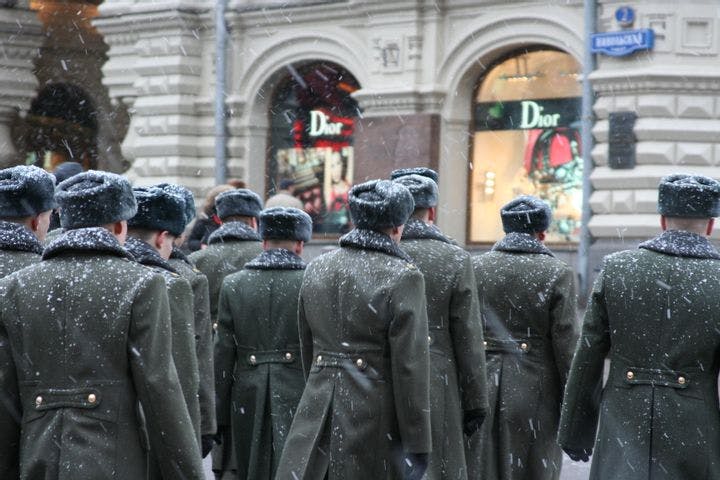Summer 2010
Enterprising Apparatchiks
– The Wilson Quarterly
In Russia, there wasn’t a law on the books criminalizing human trafficking until December 2003.
International migration monitors estimate that 10,000 people are trafficked out of Russia for sex work every year, while thousands more—most hailing from impoverished parts of the former Soviet empire—are trafficked into the country to toil at Russian construction sites, textile factories, and agricultural concerns. As with other social problems, the Russian legislature has been slow to respond: There wasn’t a law on the books criminalizing human trafficking until December 2003. Of the 350 cases of human trafficking registered with the authorities through 2007, only 10 have made it to the courts.
Those familiar with post-Soviet Russia’s struggles with poverty and graft would likely attribute these disheartening statistics to corruption. But Lauren A. McCarthy, a Ph.D. candidate in political science at the University of Wisconsin, Madison, contends that the explanation is more complicated.
Exhibit A: Russia’s byzantine criminal justice system. During the investigation and prosecution of human traffickers, a case may pass through four departments in various federal ministries, and “no link in the chain really has any incentive to follow a case through.” Add to that the fact that Russian law enforcement officials are a cautious breed, immured in a Soviet-style hierarchy that penalizes those who work on cases that don’t advance. Officials are particularly reluctant to apply the new human trafficking law, as they fear they will get tripped up by its complicated provisions and harm their careers.
Trafficking is a particularly difficult and resource-intensive charge to pursue. One federal anti-trafficking official told McCarthy that his unit could investigate 10 cases of prostitution in the time it would take to investigate one case of trafficking. Like law enforcement personnel throughout the world, “the majority of Russian law enforcement are honest and hard-working, trying to do their jobs within a set of institutional constraints,” McCarthy writes. Often that involves applying articles of the criminal code that require less evidence than the articles on trafficking but are more likely to result in conviction. Altogether, Russian law enforcement is more successful at jailing human traffickers than the low number of cases suggests. “After adding up all the disincentives to work on trafficking,” McCarthy observes, “it is a wonder that Russian law enforcement has managed to do anything at all.”
THE SOURCE: "Beyond Corruption: An Assessment of Russian Law Enforcement’s Fight Against Human Trafficking” by Lauren A. McCarthy, in Demokratizatsiya, Winter 2010.
Photo courtesy of Flickr/PhotoAgo
